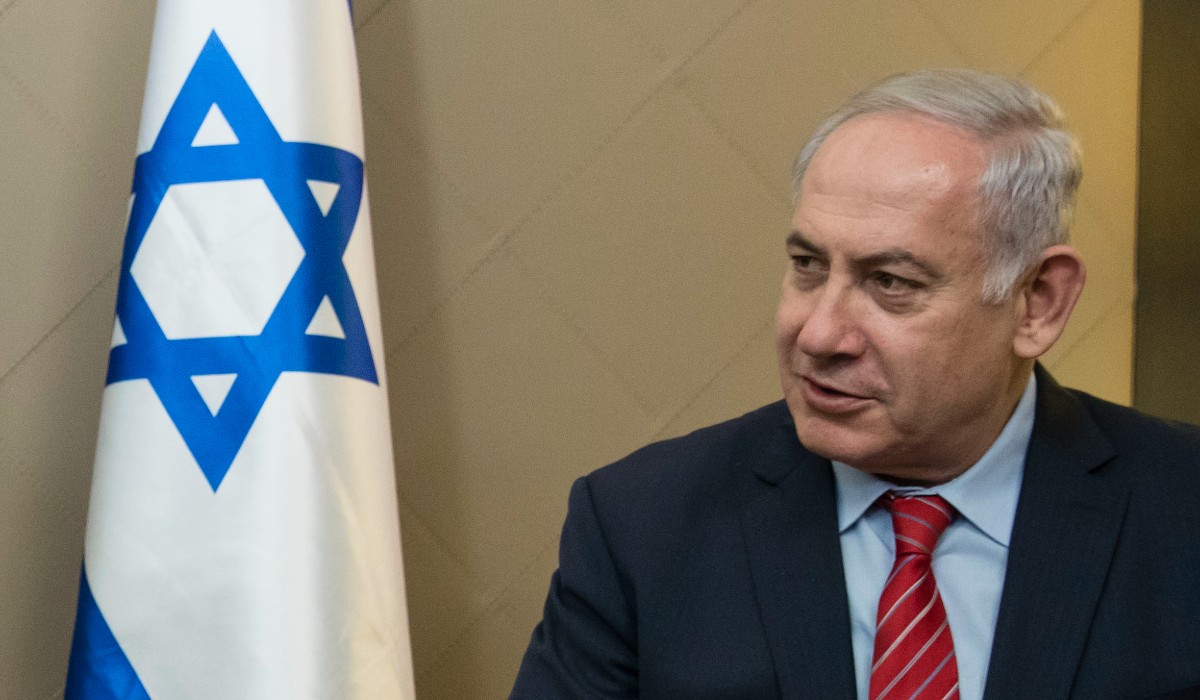 Netanyahu. Photo: Cabinet of Ministers of Ukraine / Wikimedia Commons / CC BY 4.0
Netanyahu. Photo: Cabinet of Ministers of Ukraine / Wikimedia Commons / CC BY 4.0
Netanyahu’s new Israeli government is less a step change and more an intensification of existing settler-colonial trends, argues Alex Snowdon
Benjamin Netanyahu has formed a new Israeli government in recent days. This ends a period of negotiations following the country’s general election in early November, which was a victory for very right-wing, including far-right, parties.
In some quarters there is talk of this marking a shift to a hard-right government, or a racist government, or an apartheid government. The new government has all these characteristics. However, this is nothing new. It does, though, continue a long-term direction of travel. It is Israel’s most right-wing government ever, with a cabinet that includes politicians politely referred to as ‘ultra-nationalist’.
The most prominent is new national security minister Itamar Ben-Gvir, who has convictions for inciting anti-Palestinian racism and supporting terrorism. He has a long record of extremism, even by Israeli standards, and comes from the Kahanist tradition of Zionist fanaticism. Ben-Gvir’s ministry is being given expanded powers, including increased control over the Israeli police (which could prefigure greater repression of Palestinians inside Israel).
November’s election signified a further shift rightwards after many years of Israeli politics moving to the right. The Israeli Labor Party has been losing support for a long time, sinking to just four seats in the 120-seat Knesset, the Israeli parliament, in November. The election also indicated the growth of support for right-wing religious parties and for politicians associated with strident anti-Arab racism.
The election’s outcome and the composition of the new government reflect a real shift rightwards – and increasing support for overtly racist policies and rhetoric – among Israel’s Jewish majority. This is underpinned partly by the expansion of settlements in the occupied West Bank and the accompanying rise in settler numbers. There has been a sharp rise in settler violence towards Palestinians, with such abuse and intimidation often tacitly sanctioned by Israeli authorities.
Intensification of settler colonialism
In many ways, this follows the logic of the settler colonialism on which Israel was founded. Israel has always, within its own borders, privileged Jewish citizens over the Palestinian minority. Its occupation of large parts of historic Palestine since 1967 has encouraged a hostile and antagonistic stance towards the Palestinians who live there, accentuated by the building of settlements and the infrastructure of military occupation around them.
Coalition agreements published in recent days give a sense of where things are heading. They include calls for the annexation of the West Bank and for legal approval to be swiftly given to new settler outposts (despite being illegal under international law). Adalah, the Palestinian legal centre, says:
‘The guiding principles, coalition agreements and recent legislative initiatives leave no doubt as to the direction in which the next government is racing: deepening its apartheid policies and intensifying Jewish supremacy and systemic discrimination against Palestinians.’
The dominant political agenda reflects the wishes of settler groups more than ever. One settler leader, Daniella Weiss, has declared that the new government will pursue more rapid Jewish settlement of not just the West Bank, but the Negev and Galilee regions of Israel, which have large Palestinian populations.
Netanyahu has ramped up the rhetoric, saying: ‘Jewish people have an exclusive and unquestionable right to all areas of the Land of Israel.’ This would be disturbing enough if it referred only to the land covered by the state of Israel, in which 20% of people are Palestinian, but Netanyahu is alluding to a much wider territory than that. Crucially, this buries any lingering illusions that Israel might support the creation of even a weak and beleaguered independent Palestinian state.
Internationally, this further lurch to the right will make it still harder for Western governments to justify complicity in Israeli apartheid, and for Arab leaders to excuse their ‘normalisation’ initiatives. In general, though, there has been little condemnation, while the US president, Joe Biden, has reiterated that Israel and the US are ‘brothers’.
It is the global movement of solidarity with Palestine, steadfast in its opposition to all forms of Israeli settler colonialism and apartheid, that we must look to, not our governments or politicians.
Fund the fightback
We urgently need stronger socialist organisation to push for the widest possible resistance and put the case for change. Please donate generously to this year’s Counterfire appeal and help us meet our £25,000 target as fast as possible.

